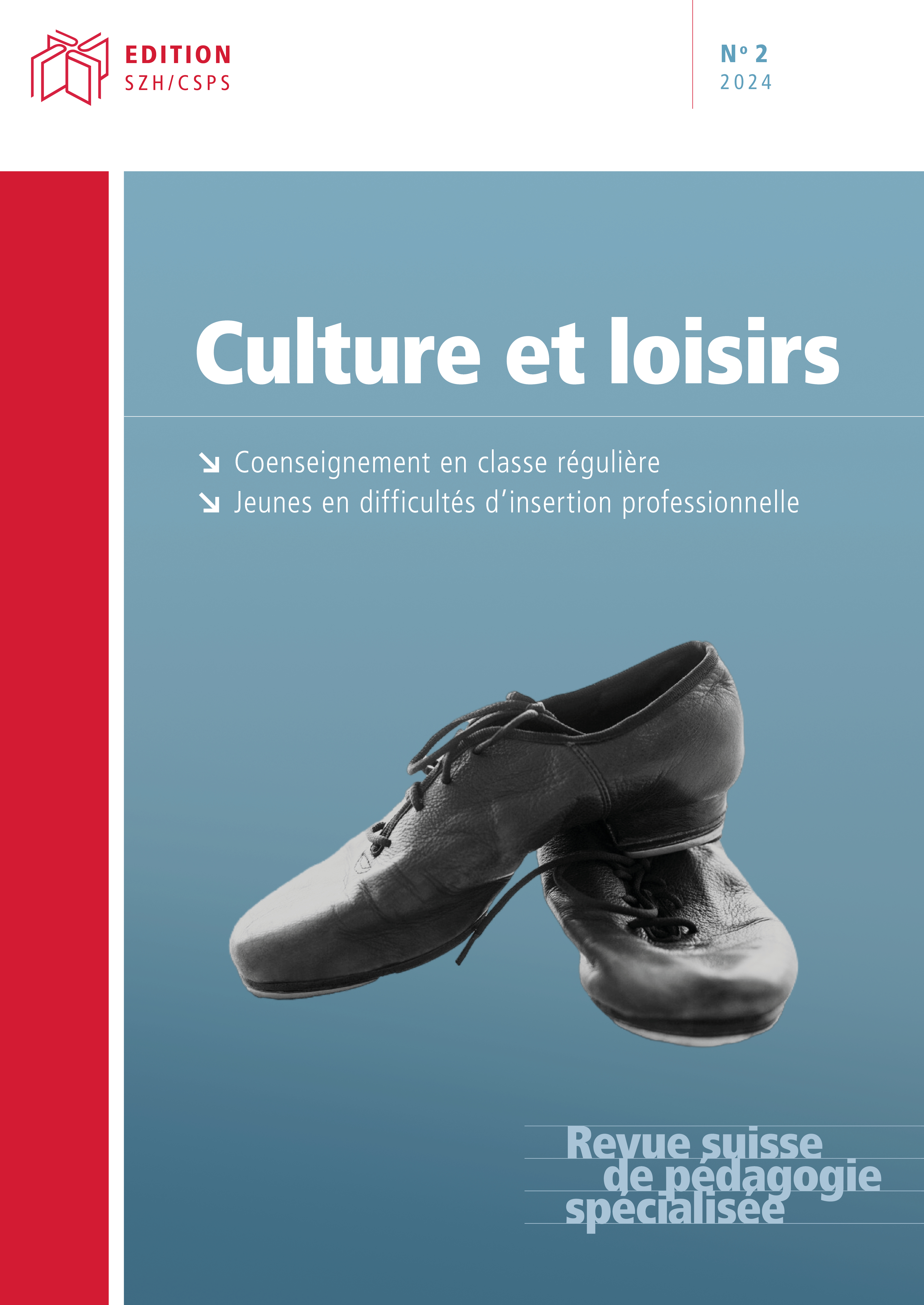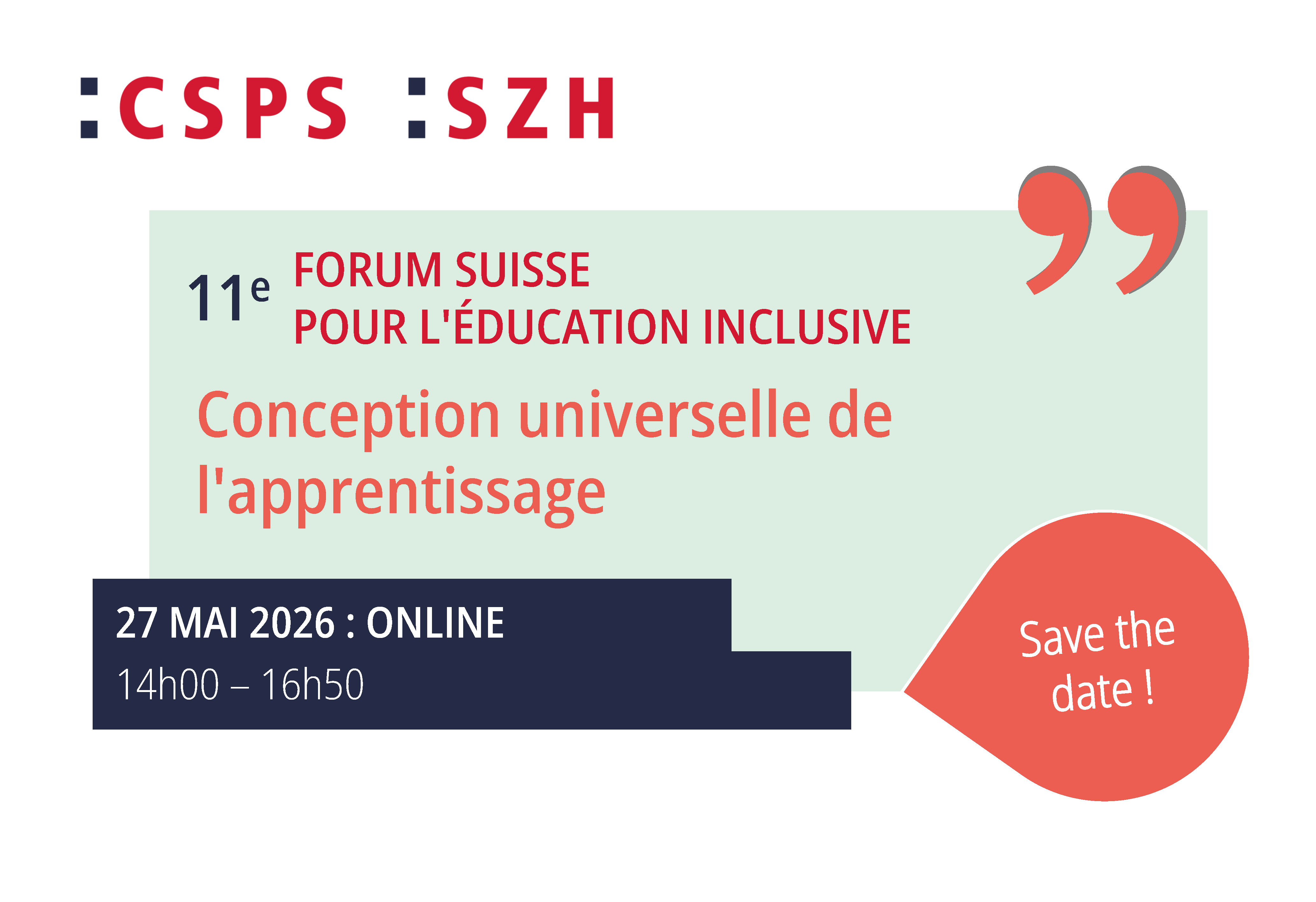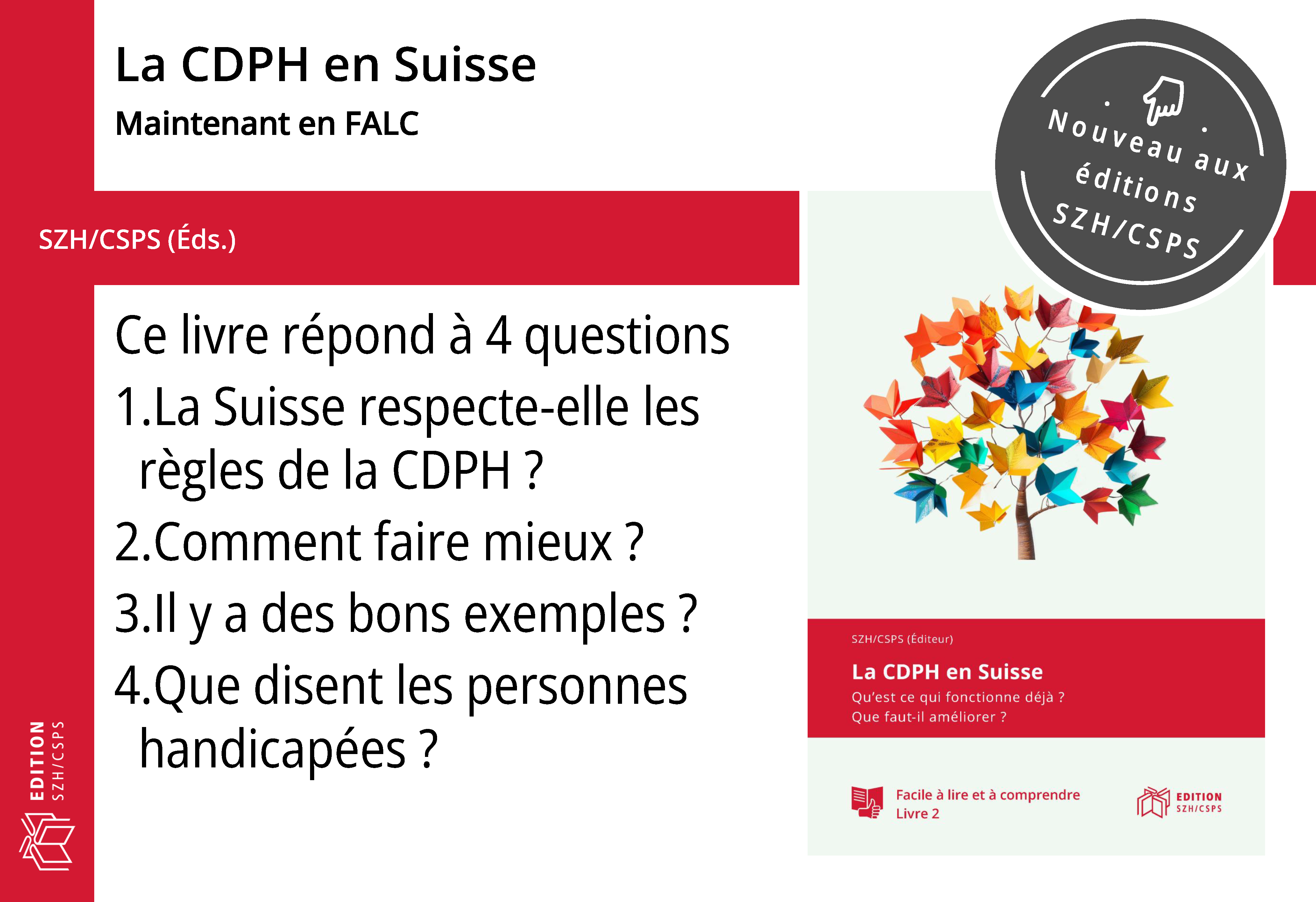Augmenter la prévisibilité des activités de loisirs par l’immersion sensorielle
Développement et évaluation d’un outil dans le cadre de la Mad Pride 2023
DOI:
https://doi.org/10.57161/r2024-02-02Schlagworte:
Autismus-Spektrum-Störung, Freizeit, Informationstechnologien, Neurodiversität, soziale TeilhabeAbstract
Die Planung und Durchführung von Freizeitaktivitäten ist nicht immer einfach. Bestimmte Hindernisse, die mit gewissen Ereignissen einhergehen, können unüberwindbar sein, wie der Mangel an genauen Informationen oder die sozialen Anforderungen. Ziel des vorliegenden Forschungsprojekts ist es, diese Problematik besser zu verstehen, um Lösungen zu entwickeln. Diese sollen es erleichtern, Freizeitaktivitäten für Menschen mit kognitiven und/oder sensorischen Beeinträchtigungen auszuwählen und durchzuführen.
Literaturhinweise
Cantin, R., Boucher, N., Vézina, J., & Couture, M. (2017). Handicap et loisirs. Vers une meilleure compréhension de la participation sociale par l’expérience de loisir inclusive, Loisir et Société́ / Society and Leisure. 40(3), 340-359. https://doi.org/10.1080/07053436.2017.1378506
Chen, S.-W., & Chippendale, T. (2018). Leisure as an End, Not Just a Means in Occupational Therapy Intervention, The American Journal of Occupational Therapy, 72(4), 7204347010p1-7204347010p5. https://doi.org/10.5014/ajot.2018.028316
Hutchinson, S., Lauckner, H., Meisner, B., Gallant, K. & Riversides, G. (2017). Fostering self-determination and sense of belonging through leisure education: reflections on the Steps to Connect program, Loisir et Société / Socie-ty and Leisure, 40(3), 360-376. https://doi.org/10.1080/07053436.2017.1378503
Lundberg, N., Taniguchi, S., McCormick, B. & Tibbs, C. (2011). Identity Negotiating: Redefining Stigmatized Identities through Adaptive Sports and Recreation Participation among Individuals with a Disability, Journal of Leisure Research, 43(2), 205-225. https://doi.org/10.1080/00222216.2011.11950233
Patterson, I., & Pegg, S. (2009). Serious leisure and people with intellectual disabilities: Benefits and opportunities. Leisure Studies, 28(4), 387–402. https://doi.org/10.1080/02614360903071688
Szaszák, G., & Kecskés, T. (2020). Universal open space design to inform digital technologies for a disability-inclusive place-making on the example of Hungary. Smart Cities, 3(4), 1293-1333. https ://doi.org/10.3390/smartcities3040063
Touré, E. H. (2010). Réflexion épistémologique sur l’usage des focus groups : fondements scientifiques et problème de scientificité. Recherches qualitatives, 29(1), 5-27. https ://doi.org/10.7202/1085130ar
Veyre, A., Perrelet, V., Chanclud, E., & Ray-Kaeser, S. (2022). État des lieux des besoins et technologie d'aide pour la planification et la réalisation d'activités de loisir : une démarche participative. ErgOthérapies, 86, 19-31. https://doi.org/10.60856/vnmw-nn70
Veröffentlicht
Zitationsvorschlag
Ausgabe
Rubrik
Lizenz
Copyright (c) 2024 Noémie Lavanchy, Valentine Perrelet, Aline Veyre

Dieses Werk steht unter der Lizenz Creative Commons Namensnennung 4.0 International.




